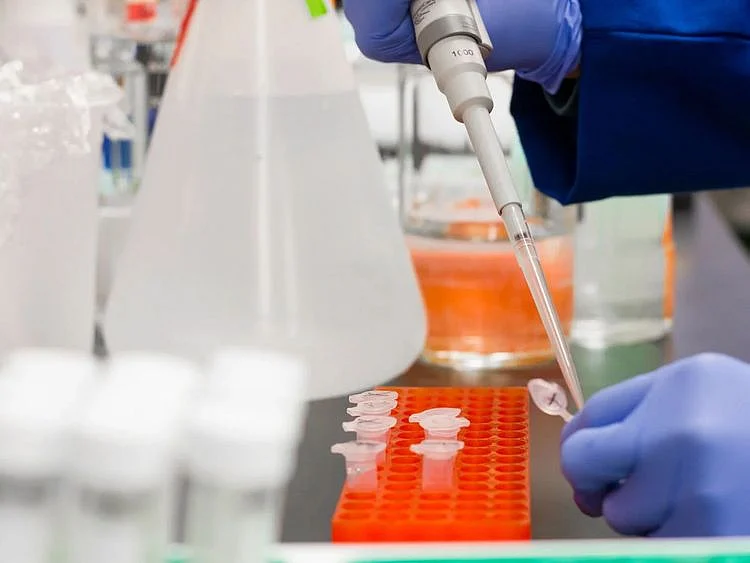Coronavirus: What are the chances of recovered patients testing positive again?
UAE doctors urge caution as global reports emerge on reinfections

Abu Dhabi: More than two million people around the world have been infected with the novel coronavirus since it first surfaced in December 2019, and about a quarter have recovered till date. But does this recovery confer lasting immunity on the recovered?
This is a question that even the topmost experts around the world do not have an answer for yet. What is clear though is that even recovered patients must practise social distancing and keep up hygiene measures in order to keep themselves and others protected.
“It is imperative that recovered patients continue to follow guidelines set out by local authorities to contain the spread of COVID-19. As we do not know for certain that they cannot be re-infected, we should consider them as at risk as anyone else,” advised Dr Maher Balkis, associate staff physician for infectious diseases at Cleveland Clinic Abu Dhabi.
“In countries that were first affected by the virus, like China, South Korea and Japan, there have been reports of re-infection. We do not know yet if these were actual re-infections, or if earlier tests that showed the virus had been cleared were unreliable, or even if the later tests were false positives. But we have to be cautious for at least the next three to four months, and take precautions for the rest of the year,” said Dr Jyoti Upadhyay, internal medicine specialist at Aster Hospital Mankhool.
What makes a person immune?
Scientific understanding of immunity to coronaviruses is still limited, However, what is known is that most people infected with SARS in 2002 and 2003, remain protected from recurrent infections for a period of two years, while those who contracted MERS remained protected for about three years.
The coronavirus that causes COVID-19 – Sars-CoV-2 — is said to be most similar to the SARS virus. But it is quite possible that immune responses to it could be maintained for a shorter period.
Marc Lipsitch, a Harvard epidemiologist who consults for the United States’ Centres for Disease Control (CDC) believes immunity in a recovered patient could last for about a year.
What does re-infection mean?
“[Because] the virus that causes COVID-19 is very new, we simply do not have a clear picture regarding immunity following infection. There have been reports of patients testing positive for the virus a second time after recovery, although questions remain regarding whether they had been clinically cured or simply shown a false negative when tested. Current evidence suggests that previously being infected may not be a guarantee that you won’t get sick again,” Dr Balkis said.
“One possible explanation for this could be that the virus does not elicit a strong enough response to ‘imprint’ a memory on the cells of the body’s immune system,” he explained.
Other people may lose immunity quickly because they are immunocompromised, Dr Upadhyay said. Another theory suggests that the coronavirus can mutate enough to successfully reinfect those who have recovered from COVID-19 once.
Earlier this week, World Health Organisation officials also suggested that everyone who recovers from the coronavirus may not have the antibodies to fight a second infection.
There is hope
While this can seem dire, doctors hope this means that a possible re-infection leads to a milder form of the disease.
“People who have been vaccinated against chickenpox have been noted to contract it after many years, but in such cases, the symptoms are less severe. We may find a similar trend occurring with the novel coronavirus. As of now however, we simply do not have enough data,” said Dr Rasha Alani, family medicine specialist at Medcare Medical Centre – Al Khawaneej.
“In addition, I believe the development and administration of a vaccine could effectively change the disease outbreak pathway,” she added.
What public health officials look for with infectious diseases is herd immunity, a state in which enough people have become vaccinated against the condition to ensure that vulnerable people do not have the risk of contracting it from those who are sick. According to the WHO, there are at least 70 candidate vaccines in development at the moment.
Protective measures
While scientists race to find an effective vaccine however, it remains everyone’s responsibility to adhere to guidelines that have proven to limit the COVID-9 outbreak, including social distancing and hygiene measures.
“Protecting against possible re-infection is the same as protecting against infection. It’s imperative that people follow local authority guidelines, practise physical distancing, stay at home as much as possible, wash their hands frequently and avoid touching their face,” Dr Balkis added.
Sign up for the Daily Briefing
Get the latest news and updates straight to your inbox
Network Links
GN StoreDownload our app
© Al Nisr Publishing LLC 2026. All rights reserved.